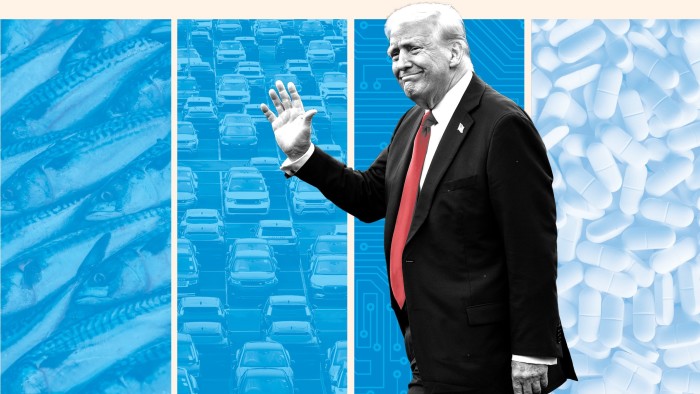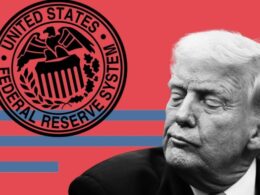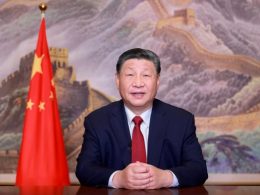Sir Keir Starmer is bracing for the Trump administration to impose tariffs on the UK this week along with the rest of the world.
The UK prime minister has warned that the tariffs will come despite efforts by trade negotiators to broker a new “economic deal” with Washington aimed at sparing Britain the worst of the new measures.
The UK government has said it will continue to negotiate, but trade experts warn that London may need to pay a high price to win any future exemptions.
Is negotiating with Trump a fool’s errand?
The UK government has said it believes it can strike a deal, buoyed by Donald Trump’s remarks in February when the president said the US and Britain could “very well end up with a real trade deal where the tariffs wouldn’t be necessary”.
Two months on, however, the UK has not made sufficient progress to finalise an agreement. Some experts argue that this is because the Trump administration isn’t actually interested in doing such deals, because it is ideologically committed to tariffs that it believes will raise up to $600bn.
Aslak Berg, trade policy expert at the Centre for European Reform think-tank, said the list of US trade grievances set out by the Trump administration is so extensive — covering not just tariffs but taxes including VAT and online and environmental regulations — that they can never be satisfied.
“The US demands on regulation and taxation amount to regulatory subordination,” he said. “That’s not the kind of demand you’d make if you were looking to make a deal — it’s what you’d propose if you’re looking for an excuse to impose tariffs.”
What could the UK offer to appease Trump?
The UK is trying to strike what Starmer called a “new economic deal with advanced technology at its core” that focuses narrowly on areas of shared economic interest.
It is also trying to avoid the pitfalls of previous US-UK trade negotiations that have foundered on demands by Washington to relax food standards, such as allowing chlorine-washed chicken or hormone-treated beef, and improve access to the NHS for US pharmaceutical companies.
At the same time, the UK has indicated it is prepared to bargain over the digital services tax, a levy on global tech companies that is forecast to raise £800mn a year for the UK Treasury in 2024-25, but which Washington says unfairly targets US giants such as Alphabet, Meta and Amazon.
Michael Gasiorek, director of the UK Trade Policy Observatory at Sussex university, said ditching or diluting the digital services tax could help unlock concessions from the US. This would be a small price to pay when set against the cost of absorbing a 20 per cent blanket tariff that the group estimates could cause a £20bn hit to UK exports, he added.
Gasiorek said the UK could look at offering additional sweeteners, such as ways to increase access for US companies to the Oxford-Cambridge tech corridor, or allowing conformity testing by US-based regulatory standards bodies to be recognised in Britain.
While the UK has ruled out accepting US food standards, it could look to reduce tariffs on some specific products, including meat, fish and machinery products.
In its annual country-by-country trade report published this week, the US government singled out 20 per cent tariffs on some fish and seafood products, 10 per cent on trucks and cars, and up to 6.5 per cent on chemicals as being “high”.
Can the UK keep Europe onside?
Starmer’s additional challenge is that the UK is also currently trying to “reset” its trade relations with Brussels, including in two key areas — food standards and global green taxes — that are in conflict with long-standing US trade policy demands.
Plans to strike a veterinary agreement with Brussels to remove red tape at the border for UK food and plant exports will require Britain to sign up to EU rules and regulations that Washington claims are “unscientific” and protectionist and that block the export of US products, including pork, chicken and beef.
An EU-UK veterinary agreement would also preclude Britain from giving ground on other areas, such as pesticide limits, which Washington says are also “unscientific” and block US agricultural exports.
UK trade secretary Jonathan Reynolds has said adopting US food standards is a “red line” for London.
What concessions is the UK likely to have to make?
Trade experts warn that the Trump administration may still demand concessions on agriculture to placate their strong voter base in rural US states.
Former UK trade department official Allie Renison, now at consultancy SEC Newgate, said Congress was likely to be “very unhappy” if a deal with the UK contained no concessions on agriculture, particularly if a trade war with the EU hit US farmers.
However, the US administration understood Britain was committed to following EU food rules and therefore might accept UK tariff cuts on food products, seeds and agricultural machinery instead, Renison said.
“Republicans under Trump are willing to be a bit more flexible on some of the more sensitive issues that have historically plagued US trade relations with the EU and UK,” she added.
What are the other areas of contention?
A plan by the UK to re-link its carbon market with Brussels as part of the EU “reset” also risks creating a clash with Washington. Britain intends to launch a so-called “carbon border tax” in 2027 on imports such as steel and fertiliser, a move the US deems unacceptable.
A second former UK trade official, David Henig, now with the ECIPE think-tank, said the UK was less likely to win exemptions on steel, aluminium and auto tariffs already announced, but still had the chance to win a lower global tariff.
“It feels as if Trump doesn’t want deals right now — which is perhaps why the UK has failed so far — but there is still a chance to get a reduced global tariff after putting the [digital services tax] on the table,” he said. “Of course, agriculture blocked the deal last time and may be the same again.”
Source link









